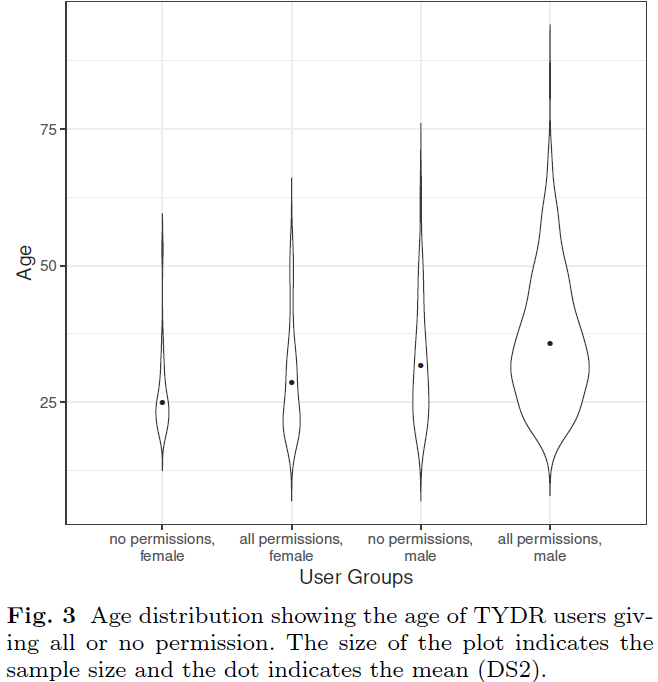Expanding on our earlier work on privacy in mobile sensing/data collection apps, we evaluated the data we collected with TYDR. Our experimental evaluation based on the first two month of data collected with TYDR shows evidence that our users accept our proposed privacy model. Based on data about granting TYDR all or no Android system permissions, we found evidence that younger users tend to be less willing to share their data (average age of 30 years compared to 35 years). We also observe that female users tend to be less willing to share data compared to male users. We did not find any evidence that education or personality traits are a factor related to data sharing. TYDR users score higher on the personality trait openness to experience than the average of the population, which we assume to be evidence that the type of app influences the user base it attracts in terms of average personality traits.
You can find our full article published in the Journal of Ambient Intelligence and Humanized Computing here (PDF).
Summary of the highlights:
- Users spent 10 seconds on average (SD: 23.6) on reading the Terms and Conditions and the Privacy Policy. 95.5% then hit “accept.” Convenience seems to be more important than reading the details.
- Younger users tend to be less willing to share all data from all sources
- Female users tend to be less willing to share all data from all sources
- Type of app likely influences the the user base in terms of average personality traits

